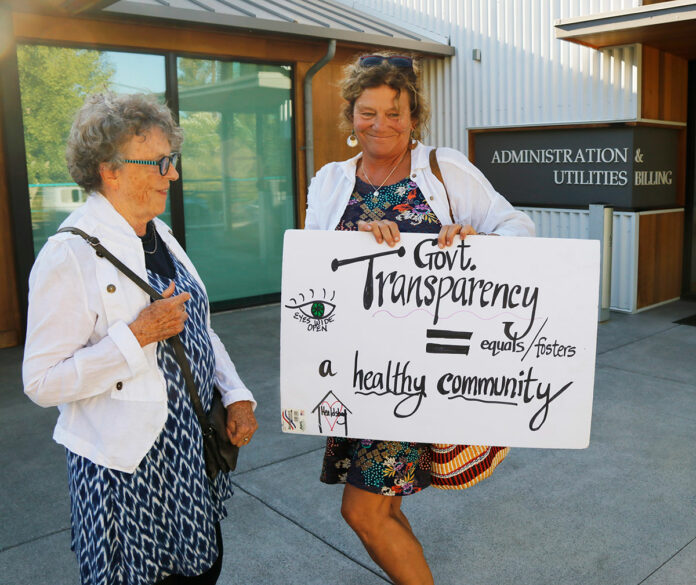
In a democracy, the government serves the people; the people do not serve the government. Because there is no accountability without transparency, the California Constitution guarantees that “the meetings of public bodies” shall be “open to public scrutiny.”

The Brown Act, California’s open meetings law for local governments, declares, “The people, in delegating authority, do not give their public servants the right to decide what is good for the people to know and what is not good for them to know.”
Under the Brown Act, a city council must hold open and public meetings, with limited exceptions. The council may not meet without an agenda posted in advance describing every item to be addressed, and it may not discuss matters not on the agenda, with limited exceptions.
The public has the right to comment on every agenda item or any matter within the city’s authority. The people’s representatives must hear the people’s concerns.
The Brown Act recognizes that a city council may need to hold closed sessions for confidential matters. For example, in addition to matters such as personnel issues, real estate negotiations and threats to security of public buildings or services, the act allows a city council to hear confidential legal advice about actual or impending litigation.
However, the act does not allow unlimited secrecy about closed sessions. Before holding any closed session, the city council must identify the reason for doing so. In particular, the council must identify the legal basis for discussing actual or impending litigation.
The public may not have a right to listen to the closed session, but it has a right to learn as much about it as possible and share thoughts with the council. Some people might favor or oppose settling a case or have concerns about the terms on which the city might settle. The city council might not have to debate those issues in public, but it has to listen to the people’s views.
If a city is exposed to litigation and the potential plaintiff already knows about the issue, such as a collision with a city vehicle or a land use dispute, the closed session agenda must generally describe the relevant facts.
When the facts are not yet known to a potential plaintiff, for example when city staff know of a hazard that is not yet public, the agenda does not have to say what the facts are. That is an unusual scenario, since many potential disputes arise from facts already known to the parties involved.
Because the public cannot see or hear the closed session, it has to depend on city officials to honor the Brown Act’s limits. For example, if the agenda lists a closed session to talk about risks of liability from facts not yet known to the potential plaintiff, the city council can only discuss that precise issue. It cannot slide into talking about a legal issue already known to the plaintiff.
This might seem like a technical matter, but it goes to the heart of transparency and accountability. For example, if a city has a legal dispute with a developer about permits for a construction project, the public has a right to know if the council is going to talk about that dispute in closed session, so people can state their views about it. They might be concerned the council would fight the case too hard or that it would cut a sweetheart deal to settle the case.
In that scenario, the city council has to decide how best to proceed with the case, and it has the right to have that discussion behind closed doors. Before it does, however, it has to hear from the people. But the people cannot comment on what they do not know is on the table.
The Brown Act allows the county district attorney or any member of the public to bring suit to declare certain actions null and void or stop a local government from violating the Act. When all else fails, the people have the right to hold the government accountable in court. That should not have to be necessary, but experience shows it is all too common.
David Loy is legal director of the First Amendment Coalition, a nonprofit public interest organization.







